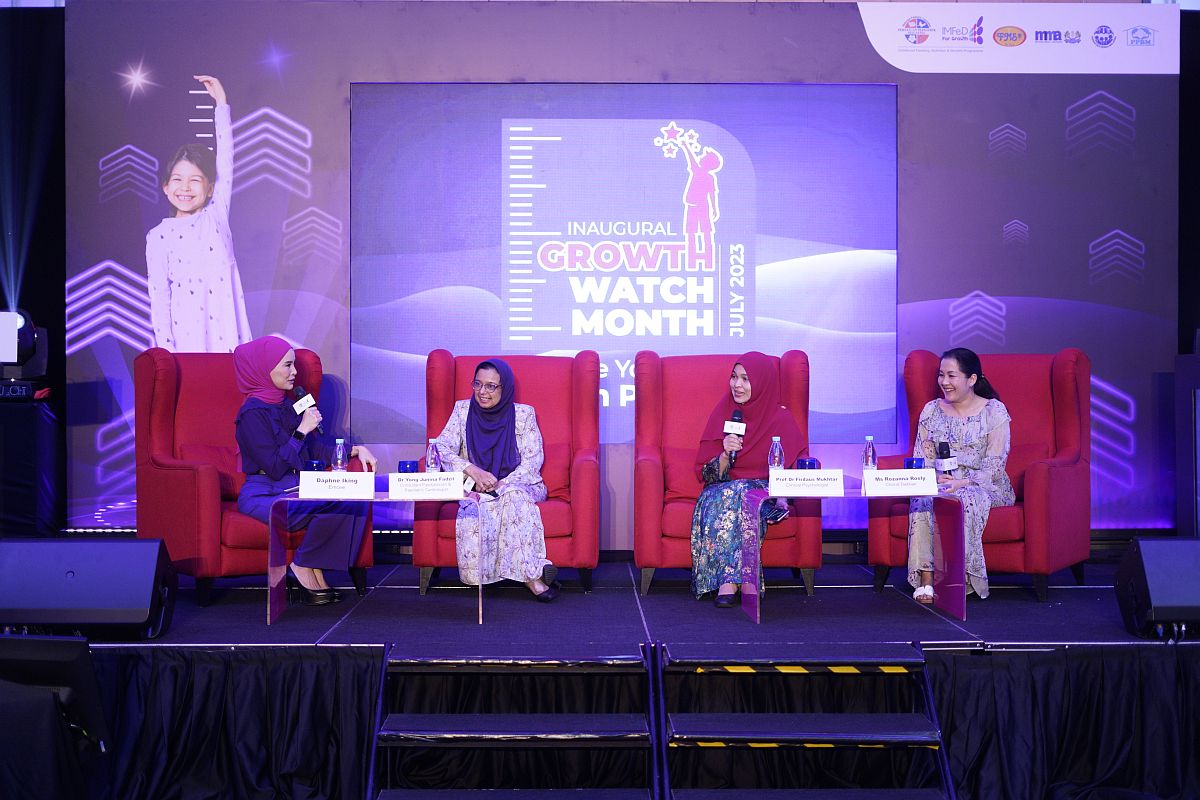KUALA LUMPUR, June 15 – Growth Watch Month was inaugurated on June 12, 2023 to bring health care professionals and parents together to prevent stunting in children and adolescents so they may attain their full growth potential for a brighter future.
The Malaysian Paediatric Association (MPA) initiated this annual nationwide event under its IMFeD for Growth programme, which began in 2012.
Growth Watch Month was jointly launched by the MPA and its partners, namely, the Malaysian Medical Association, Malaysian Family Medicine Specialists’ Association, Malaysian Association of Kindergartens, and Malaysian Association of Registered Early Child Care and Development.
Addressing The Problem Of Stunting
According to Prof Dr Lee Way Seah, chairman of the IMFeD for Growth programme, Growth Watch Month is largely dedicated to identifying children and adolescents who are either stunted or at risk of stunting.
Through relevant activities, the organisers will advise parents on the appropriate nutritional interventions and support needed to get their children’s growth back on track.
“While the majority of Malaysian children and adolescents are growing normally, childhood stunting remains a concern for the rest of them,” said Dr Lee.
By the age of 5, children are supposed to attain 60 per cent of their adult height. Sadly, based on the National Health and Morbidity Survey (NHMS) 2022, 21.2 per cent or one in five children has been found to have stunted growth.

NHMS 2022 also reported that 6.8 per cent of adolescents are stunted. These individuals were not experiencing the full benefit of growth spurts that would bring them another 15 to 20 per cent closer to potential adult height.
The short and long-term effects of stunting are clear. Stunted children tend to fall sick more often, miss opportunities to learn, perform less well in school, and have lower self-esteem.
They are also at risk of becoming stunted in adulthood as well — a condition that is associated with an increased risk of chronic diseases, decreased economic productivity, and lower lifetime-earning potential.
“We need to nip stunting in the bud. It always starts with growth faltering. This is when children are not receiving enough nutrition so their growth rate literally ‘slows’ down.
“Without adequate energy, protein, fats and micronutrients, including calcium, vitamin D and so on, their bones and muscles will not be able to develop at a healthy rate,” according to Dr Lee.
Growth faltering can occur at any time during childhood and adolescence, and tends to be so gradual that it often goes undetected.
Over the time, the children may never be able to recover their height and end up becoming permanently stunted adults with a significant disadvantage for life.
Dr Lee stressed that optimal growth can only be achieved when certain fundamentals are present, namely, good feeding practices, optimal nutrition, adequate physical activity that are appropriate for age, and regular growth monitoring from young.
“We also encourage parents to bring their children aged 1 to 17 years old to get their growth checked by a healthcare professional who has been trained to use our M-I-M approach.”
The first M refers to ‘Measure’. This step involves taking the children’s weight and height, and plotting the measurements onto World Health Organization (WHO) growth charts to ascertain whether the children’s growth fall in the normal, at-risk, or stunted ranges.
If the children are stunted or experiencing growth faltering, we need to ‘Identify’ the underlying cause. Common factors causing growth faltering in children are malnutrition, unhealthy lifestyle habits, underlying medical conditions, poor parenting skills, or a combination thereof.
Finally, health care professionals would be ready to ‘Manage’ the situation. Interventions may involve adequate and appropriate nutrition, improving parenting skills, and encouraging healthy lifestyle behaviour.
Growth Watch Month Activities
According to Dr Selva Kumar Sivapunniam, president of the MPA, Growth Watch Month provides the opportunity to focus parents’ attention on growth.
“We will work with all relevant stakeholders to conduct educational activities. These will include media write-ups and interviews,” he said.
Parents and caregivers will also be able to enjoy a series of four parents’ forums broadcast live over Zoom and YouTube.
Featuring a celebrity host and members of the IMFeD for Growth expert panel, the forums will cover topics such as:
- Feeding, nutrition, and growth.
- Helping children shine in school.
- Nurturing growth through the teenage years.
- Parenting tips for healthy children.
Another major highlight of Growth Watch Month will be the IMFeD for Growth annual screening campaign, happening from August to November 2023 in all IMFeD clinics. IMFeD has screened 127,000 children since 2018.
The Growth Watch Month launch ceremony featured a forum discussing the theme ‘Stunting in Children and Adolescents: Nature or Nurture?’. Host Daphne Iking moderated the session, during which IMFeD for Growth members shared valuable insights and advice. The panel experts comprised consultant paediatrician and paediatric cardiologist Dr Yong Junina Fadzil, clinical psychologist Prof Dr Firdaus Mukhtar, and clinical dietitian Rozanna M Rosly.












